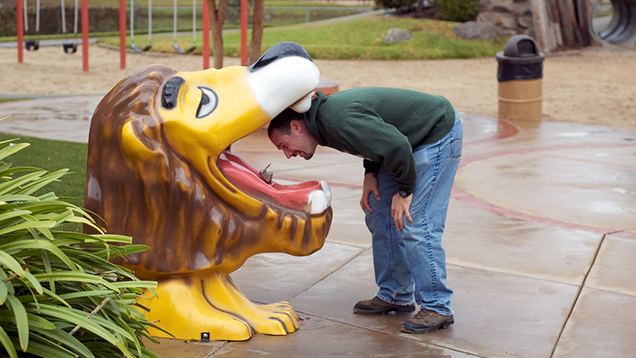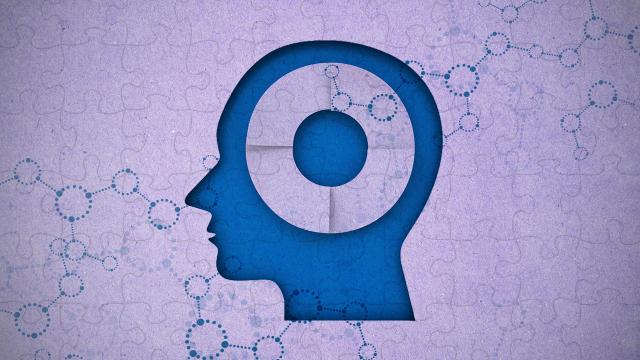Technical skills are important these days, but personal qualities like persistence, courage and patience can make just as big a difference in your career (and the rest of your life). You can develop each of these personal qualities much like you would a technical skill in order to improve yourself. Here’s how.
Pictures: ymgerman, watchara, Army Medicine, David Goehring, Jakub Hlavaty, Ed Schipul
Persistence

Few people accomplish worthy goals the first time around. Persistence enables you to try again (and again) after you fail. It’s useful in any profession that requires problem solving. President Calvin Coolidge describes why persistence is so valuable:
Nothing in the world can take the place of persistence. Talent will not; nothing is more common than unsuccessful men with talent. Genius will not; unrewarded genius is almost a proverb. Education will not; the world is full of educated derelicts. Persistence and determination alone are omnipotent. The slogan, ‘press on’ has solved, and always will solve, the problems of the human race.
If you want to practise being more persistent, don’t look too far in the future. On days you feel like giving up, focus on the immediate moment and how you can make even just the slightest bit of progress (or fix a setback) by the end of the day.
Once you’ve gained a bit of ground and the thought of planning doesn’t seem overwhelming, set tentative goals and plans. Measure your progress to stay encouraged. Make quitting more difficult.
When you’re learning something new, the “I suck” barrier can be intimidating. Even though it might seem like you’ll never get it right at that moment, remember that it’s likely you will master it eventually. Whether you notice it or not, everyone else faces similar doubts when challenged with learning obstacles.
Courage

Courage is the ability to act in spite of fear. You can choose to break the inertia of fear and take action, or you can let the fear win another day. Courage doesn’t need to be impulsive. After all, it’s likely the fear exists for a reason (such as “I don’t want to piss my boss off because I don’t want to get fired…”), and courage depends on whether or not you think the action is worth it (such as “…but it’s my idea, I believe in it, so I’ll present it and take responsibility”).
Author and Breather co-founder Julien Smith’s ebook, The Flinch, has some exercises to help you develop courage. For example, Smith suggests stepping into a cold shower (which, on a related note, has many health benefits). The key moment is stepping in knowing that it will be cold, and that you’ll suffer for a minute or two. (I’ll admit it: I had to warm the shower up after 20-30 seconds. That gradual transition felt amazing.)
You don’t necessarily have to jump into a cold shower to develop your courage. You build courage when you break out of your comfort zone.
Patience

In today’s impulsive, fast-moving, chaotic world, you can make a difference by being calm, cool and collected. Patience helps cultivate this rational thinking. For example, if you’re in customer service or hospitality, or just working with a difficult team member, patience will set you apart from the rest of your peers and keep other people happy.
The next time you feel an angry impulse coming on, don’t give in to it. Try to remember, expressing it won’t make it feel better. Even when you’re complaining about something, you could express yourself slowly and steadily, or burst and lose your temper. Both will likely achieve the same thing, but everyone will probably be less upset if you kept your temper in check.
Similarly, the next time you feel an urge arise — like the craving for an unhealthy snack, or a shortcut that could damage your work — don’t act on it right away. If you’re shopping, don’t give in to the impulse purchase (sales and discounts can make this tricky). Practise delaying your gratification to make better, well thought-out, decisions.
You can also develop your patience for work by singletasking as much as possible, and trying out different types of meditation.
While you’re developing your patience in the long run, you can also distract yourself in the short-term to appear more patient. Also, as you’re waiting around and anticipating something, remember you’ll probably enjoy an experience more the longer you wait for it.
Sociability

People may not remember what you did, but they will remember how you made them feel. Tact, timing and etiquette are all in the realm of sociability. People like working with people they like. Sociability makes your job easier and could make everyone else’s jobs more pleasant, which is an asset to any team. As The 48 Laws of Power author Robert Greene bluntly puts it: “To develop your intellectual powers at the expense of the social is to retard your own progress to mastery.”
You can develop your sociability in the real world — through coffee meetings, at trade conferences, in the actual workplace, meeting new acquaintances and so on. You could also learn etiquette through resources such as Emily Post’s books and through experts online. (For example, do you know how to back out of an appointment gracefully?)
If you’re socially anxious or dysfunctional, author Ramit Sethi suggests techniques like preparing conversation starters when you’re first breaking social anxiety and easing into conversations. Don’t give your brain enough time to psych you out.
Sociability takes regular practice and pruning. Sometimes, you may feel like you’re out of it. That’s natural. Make a note of when you’re in “heads down” mode at work and may need to “warm up” your sociability before a significant event.
These personal qualities sound simple to build, but the road will be far from easy. It will take constant discipline and persistence (which is probably a good quality to start with if you had to pick one). If you’re unsure of where to start, pick the one you’re weakest at and develop it with the corresponding suggested exercises.

Comments
2 responses to “Four Personal Qualities You Can Develop Like A Skill”
Quiet inspiring article, thanks for sharing.
Loud inspiring article, thanks for sharing.